
18 Books from 2018
What timber is for a sawmill, books are for your mind – raw material to inform your best ideas. That’s why, at the end of each year, I like to highlight some of the books I’ve read over the year. Maybe some of these books will catch your interest as you compile a reading list for 2019. If you want more suggestions, check out 15 Books from 2015, 16 Books from 2016, or 17 Books from 2017.
A note on ratings: the star ratings given to each book are intentional. Five stars indicates that a book is profound, paradigm-shaping, or exceptional in some significant way. Few books that I have ever read receive this rating. I rarely, if ever, reread a book that did not receive five stars. Four stars indicates a very solid, good, and valuable read, well worth one’s time. A three star book is average, probably worth reading if one is deeply interested in the subject. Two stars indicates a below-average book with a few good qualities. One star books are a complete waste of time.
Note: click the picture of the book to go to the Amazon page for it.
(1) Essentialism: The Discipled Pursuit of Less (Greg McKeown)
(5 Stars) In a world where everything goes faster, with more information, responsibilities, and possibilities at our fingertips, we desperately need to focus on the essentials. This book is clear, simple to read, applicable, and certainly worth your time. Whereas our culture focuses on more, McKeown argues that it is better to focus on less but better. I highly recommend that you read this book – and I look forward to reading it again, maybe in 2019!
(2) The Life of God in the Soul of Man (Henry Scougal)
(5 Stars) Written as a letter to explain the essence of real religion, Scougal’s classic book has instructed generations of believers. Scougal was a Scottish professor of theology who died at 27 years old, but not before writing the book that would help lead George Whitefield to salvation. This is a short read, and there are updated versions (in modern English) for those who want easier access.
(3) The Advantage: Why Organizational Health Trumps Everything Else in Business (Patrick Lencioni)
(5 Stars) Lencioni is one of my favorite leadership writers. I was introduced to his writings this year, and this is probably his most accessible work. Lencioni argues that many organizations (businesses, churches, non-profits, etc.) have talent, but not all have organizational health. In our hyper-competitive world, only the healthy organizations can adapt to changing tides and remain successful. This book is well-written, clear, simple, and applicable.
(4) The Imitation of Christ (Thomas a Kempis)
(5 Stars) The Imitation is one of the most famous devotional Christian books. It was written during the medieval catholic period, so I can’t recommend everything; but it is still so excellent that it earns five stars. Much of the book is written as short aphorisms – like proverbs – that you can read and think on. This book deserves more than one read – it is filled with rich piety and serious, devotional thoughts that our modern, loud, busy culture has no time for.
(5) Wordsmithy: Hot Tips for the Writing Life (Douglas Wilson)
(4 Stars) This is a short, enjoyable read for those who want to be writers. Douglas Wilson has a way with words (anything he writes is a pleasure to read), so he is the perfect teacher for aspiring ‘wordsmithies.’ His advice, if followed, were certainly make you a master of the art – though it takes work, as when he recommends reading the dictionary or getting lots of real-life experiences.
(6) The Life of Martyn Lloyd-Jones (Iain Murray)
(4 Stars) Martyn Lloyd-Jones was a British preacher and pastor who ministered in London during World War II – including the deadly German bombings. This short book (a condensed version of the much larger two volume biography) gives the general contours of his life. Over the past several years I ‘discovered’ Lloyd-Jones, and I’ve been extremely blessed by his writings. Despite a few slower spots, this biography will help shape your understanding of the man. (You’ll value it more after you’ve read some of his own writings).
(7) The Trellis and the Vine: The Ministry Mind-Shift that Changes Everything (Marshall & Payne)
(4.5 Stars) In ministry, it can be easy to focus entirely on the trellis (the ministry structures and systems), or entirely on the vine (the people being ministered to). Marshall and Payne remind us that both are important in order to see a flourishing ministry. The book introduces not only a useful analogy, but it also provides a framework for increasing the number of ‘vine-workers’ in the local church: a practical and intensely Biblical method to help harried pastors everywhere.
(8) The Supremacy of God in Preaching (John Piper)
(4 Stars) This book functions as a sort of ‘preaching manifesto’ in which John Piper looks at the characteristics of biblical preaching. He also draws much from the life and preaching of Jonathan Edwards. Far from being a preaching manual, this book functions more like an inspirational handbook for preachers: inspiration to preach for the glory of God. The content of the book is phenomenal, though the organization feels somewhat choppy.
(9) Leading Change (John Kotter)
(4.5 Stars) Ever find yourself in an organization, where you believe that change is needed? Kotter’s manual provides an excellent framework for such a daunting task. Rather than working alone and without strategy, this book lays out the crucial steps that can change even the largest organization from the inside out. Leaders need this book.
(10) The Vision of God (Kenneth Kirk)
(4.5 Stars) The Bampton Lectures of 1928, delivered at Oxford University, produced this wide-ranging work on one of the most significant concepts in history. What does it mean to ‘see God’? Tracing the question through the ancient history of Jewish and pagan thought, Kirk moves onto the distinctly Christian doctrine of seeing God. From the Sermon on the Mount, to monasticism, to the Protestant Reformation, this book surveys the various answers to this question. This is a daunting read, time-intensive to read through, but those who take the time will be richly rewarded.
(11) Hiroshima (John Hersey)
(4.5 Stars) What was it like to be in Hiroshima the day that a nuclear bomb exploded? This book gives the stories of several who were involved. It is an extraordinarily gripping book, one that forces you to read on and on. The scenes that you read will fill you with wonder and horror at the warfare of the modern world. Yet despite taking on such a deep and grim subject, the tone of the book is almost numbing and emotion-less – similar, in some ways, to the feeling that pervaded Hiroshima on the day when there was too much suffering to comprehend.
(12) The Deliberate Church: Building Your Ministry on the Gospel (Dever & Alexander)
(4 Stars) You’ve heard of the Seeker-Sensitive Church, the Emerging Church, or the Missional Church. Why not the Deliberate Church? Arguing that the local church should is a place deliberately Gospel-centered ministry, Dever and Alexander share strategies for how to do so. Partly Biblical truth, partly practical wisdom, this book is well-worth the time for any church leader.
(13) Going Public: Why Baptism Is Required for Church Membership (Bobby Jamieson)
(4 Stars) What is the relationship between baptism and church membership? What does baptism signify? Who is prepared to join the church? These questions and more are answered in this book which presents a solid case for the necessity of baptism among church members. This book is written by a Baptist, for Baptists, so not all will agree with the starting premise – but the arguments are solid and well thought through.
(14) Seven Pillars of Wisdom (T. E. Lawrence)
(4 Stars) Lawrence of Arabia was a nearly mythic figure of the First World War, an English soldier who wound up leading Arab tribesmen into battle against the Ottoman Turks. Lawrence’s autobiography gives a gripping, highly colorful account of his time in Arabia. His vivid descriptions of the war in the east reveal it to be everything one imagines: mysterious, exotic, romantic, desperate, and brutal. It is a rare look at the Middle East before it was widely affected by the west. The book can be a little slow at places, and those who read it would benefit from having a map nearby. Note: reader discretion advised due to content.
(15) Mastery (Robert Greene)
(3 Stars) What does it take to become a master? Drawing from the great masters of history, this book seeks to distill the essential lessons of mastery and that process that makes masters. Whatever field you are in, you can become a master of it. This book is full of interesting stories, but it is long-winded and overdone.
(16) The 21 Irrefutable Laws of Leadership: Follow Them and People Will Follow You (John Maxwell)
(3 Stars) John Maxwell’s 21 Laws present solid, basic leadership principles. He covers such topics as the importance of example, the value of having a vision, and the enormous effect of leading leaders. The content in this book is not particularly groundbreaking, but the concepts are important enough that every leader must be familiar with them.
(17) Evangelism in the Early Church (Michael Green)
(2.5 Stars) The early Christian movement spread like wildfire throughout the Roman Empire. In the course of only a few centuries, the church went from a handful of Palestinian peasants in a backwater province, to the dominant religion of the empire. How did this growth occur? Evangelism in the Early Church tells the story, providing an array of interesting quotations and stories in the process. Those who are not familiar with the story will find it more intriguing, but those with a background in the topic may find that this is common ground, and somewhat repetitive.
(18) Goodbye to All That: An Autobiography (Robert Graves)
(2 Stars) Robert Graves was an English army officer during the First World War. His autobiography covers his experience in the conflict and also (unlike 7 Pillars reviewed above) covers much of his life before and after the war. The account of the war is graphic and violent – and the entire biography is pervaded with a sense of disillusionment and trauma. Note: reader discretion strongly advised due to content.


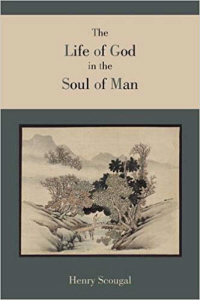
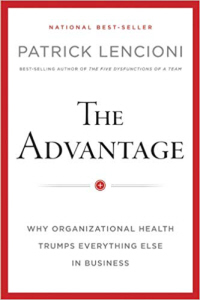
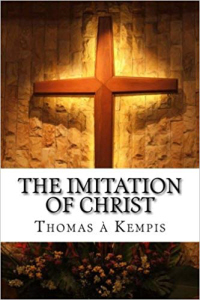
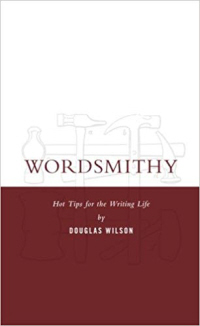
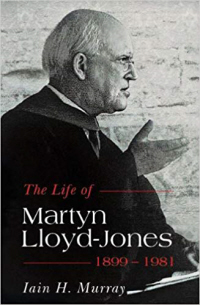
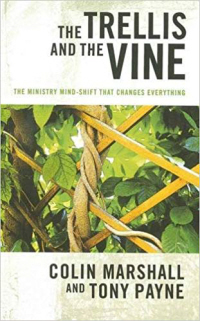
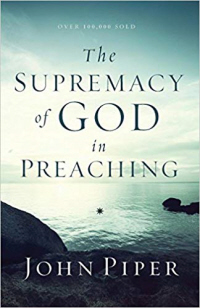
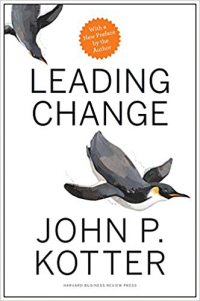
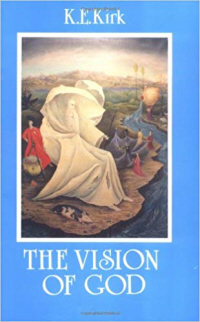
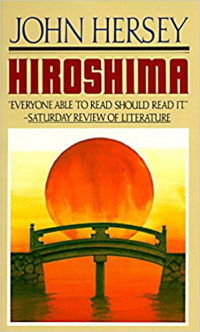
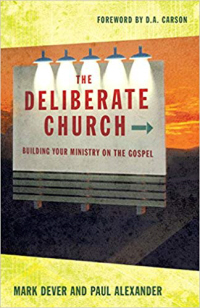
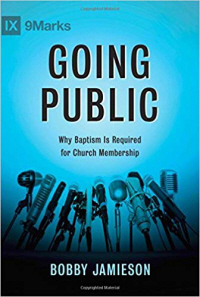
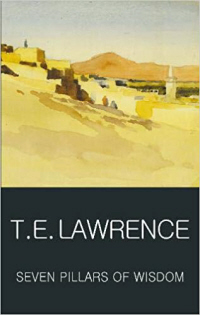
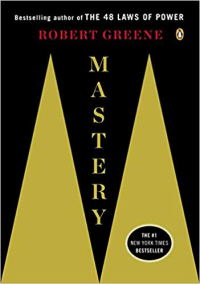
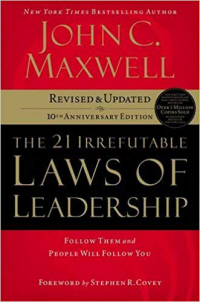
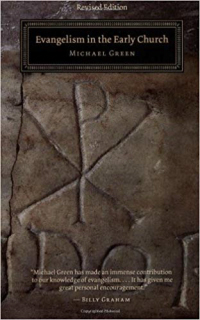
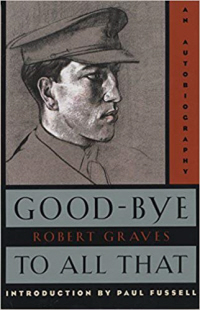



[…] look at my previous lists (21 books from 2021, 20 Books from 2020, 19 Books from 2019, 18 Books from 2018) or, browse through the online Athenaeum for a wealth of other […]